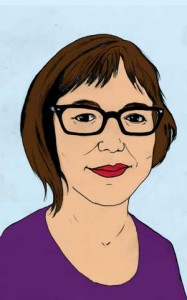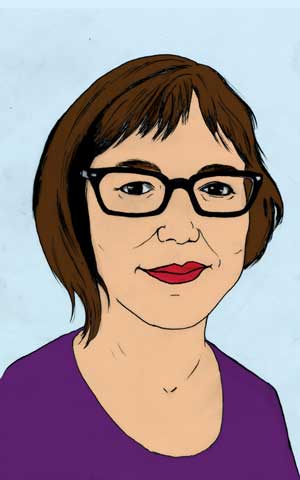 Dear Reader,
Dear Reader,
Who am I? Isn’t this the biggest existential question? All artists ask this question and continue to explore it. But do we ever get an answer?
I watched an excellent documentary on the recently departed comedic genius, Garry Shandling, directed and conceived by Judd Apatow. It was probably the most compelling documentary on an “artist” that I have ever seen. The film explored Shandling’s copious notes and diaries, which echoed the constant theme: Who am I? Am I authentic? This was the most important thing the comedian felt that he had to work through. He couldn’t be fake; that was a dead end. In order for him to find success through his art, he had to get to the truth about who he really was.
What defines us? Our family, our environment, our community, our ethnicity, our gender, our religion? Most artists question this throughout their lives and careers. Some make it the central theme of their art. In the art world this is now known as Identity Art, and that is the theme of our issue.
As an artist myself, this was definitely a question I pondered, and to tell you the truth, still do. But one problem I felt with this constant focus was: Am I just being self-indulgent, narcissistic, narrow-minded? Why should anyone else care?
These doubts arose for me back in art school, just as I was learning to navigate the art world. I recognized early on that, yes, my art was autobiographical. When I finally came to this realization, I decided to embrace it. I felt I was more authentic, and felt confident about my voice, my vision, what I really cared about, because it was the truth.
In this issue, all the artists we feature are pursuing this challenging regimen, taking their art down many long roads—literally so in the case of Carmen Argote as she maps out her plan to follow her father’s road trip to Mexico. He abandoned the family when she was just a child, riding off on a motorcycle to the city of Guadalajara, where he was born. Scarlet Cheng interviews Argote as she is preparing for the same journey, to trace her father’s tire tracks so to speak, to see what he saw—also on a motorcycle that she’s learning to drive. It’s a question she needs to figure out for herself, for her art.
Thinh Nguyen, who is profiled by Betty Ann Brown, is another traveler. Nguyen roamed the Midwest, visiting strangers’ homes, to seek out truths about race, gender and ethnicity in America; Nguyen is from Vietnam but grew up in Los Angeles. Yxta Maya Murray sits down and talks with Young Joon Kwak about her work as part of the collective Mutant Salon and her alternate ego Xina Xurner. Judie Bamber muses on the role of her parents in her art. And our cover artist, April Bey, reaches toward Afrofuturism to find herself discovering the empowerment of being black in the art world.
Some people might consider these artists to be self-indulgent, or at least too focused on their own worlds, but one’s own world can overlap with other people’s and open up channels for real human connections, along the lines of “if you can’t love yourself, how do you expect someone else to love you.” We are all individuals in this fucked-up world, and by starting with ourselves maybe we can begin to solve the huge puzzle of life.


